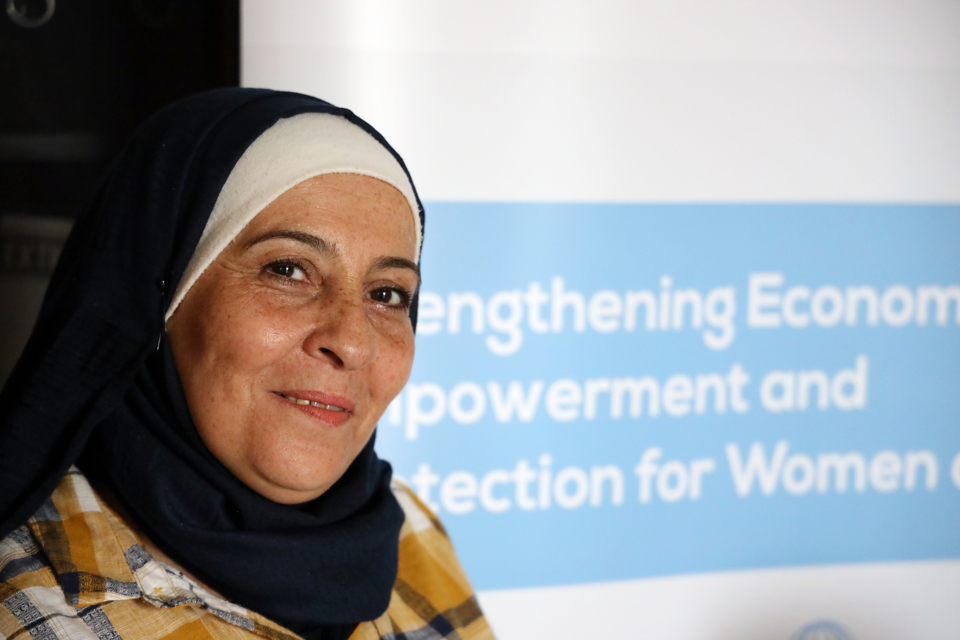A Syrian Woman in Lebanon starts her online business to fight economic hardship
Date:

Growing up in Syria, Malak Farran wanted to study law and become a lawyer. At 17, she married a Syrian man and moved to neighboring Lebanon, where her husband was employed, putting a halt to her dream of practicing law.
Settling in Lebanon, far away from her family, was a difficult experience. She was also overwhelmed by the local culture and traditions which were different from her native Syria. She committed herself to caring for her five children, and as they grew up – she found herself spending long hours at home, alone.
"My husband works as a security guard in a private company in Downtown Beirut and spends his day at work while my children are either at school or university, so I am often by myself and feel bored," she explains.
At 44, Malak discovered a talent and interest in making candles. While exploring this hobby, she found a two-month training on soap and candle-making at Tariq El Jdide's Social Development Center, a government-managed multipurpose space offering services to the community.
Encouraged by the proximity of the center to her house, she joined the training, provided by UN Women and Safadi Foundation, with support from the Government of Japan.
After finishing the training, Malak began by sending pictures of her products to her friends. Soon, her daughters Mona, Maya, Nour, and Natasha joined her efforts, and using Natasha’s Instagram account, they started to market the products, under the label “Natasha’s Candles and Soaps”. With a bachelor’s degree in business administration, Maya is now working to expand online marketing opportunities.
Malak completed the training in February and since then has sold 40 custom-made candles, with help from her children and her husband. This means that Malak is now able to pay for the family’s groceries and expand the range of foods they’re able to eat.
As of April 2020, 75 per cent of people living in Lebanon were in need of aid. The acute economic downturn, alongside the COVID-19 pandemic and containment measures, has also resulted in one in three Lebanese reportedly losing their jobs, with many more likely to be pushed into the informal sector where there is typically less protection of fundamental labour rights. Furthermore, according to gender analysis by UN Women, the explosions which hit the port of Beirut on August 4, will have broad, long-term negative impact on the country due to the destruction of the port and its effect on deepening Lebanon’s economic crisis.
"The training was the best two months of my life," says Malak. In June, she became a volunteer trainer at the Social Development Center. Four days a week she provides free instruction to 20 teenage girls on how to make candles and soaps. Taking into account the spread of the COVID-19 pandemic, Malak follows the required measures and precautions; she regularly cleans the training space, everyone in her class wears masks and is asked to keep the necessary distance from each other.
"I want to give back and show how grateful I am for the opportunity I received" she explains, "I enjoyed my training because of the good-spirited trainer and the great atmosphere".
Malak will continue producing candles at home until she is able to open her own shop. "My family constantly encourages me, and my husband is glad to see me happy and working on something I enjoy. With my new acquired skills, I am also appreciating my time at home much more.”